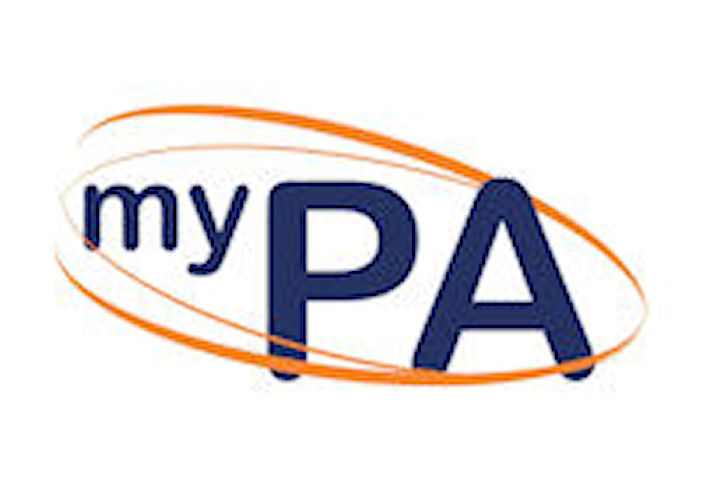How to prepare for an appraisal with a bullying boss
Dealing with a bullying boss can be challenging, especially when preparing for an appraisal. However, it’s essential to approach the situation calmly and professionally. What is an appraisal and why is it so important?
The Context for Appraisals:
Workplace appraisals, or performance reviews or evaluations, are a structured and formal process by employers to assess and review employee performance, progress, and contributions within an organisation. There are several vital reasons workplaces conduct appraisals:
- Performance Assessment: Appraisals systematically and comprehensively evaluate an employee’s performance and achievements over a specific period. It helps supervisors and managers gauge how well employees fulfil their job responsibilities and meet expectations.
- Feedback and Communication: Appraisals offer a platform for constructive feedback and open communication between employees and their supervisors. It allows both parties to discuss strengths, areas for improvement, and career development opportunities.
- Goal Setting and Alignment: During appraisals, employees and managers can collaboratively set new performance goals or adjust existing ones. This process aligns individual objectives with the organisation’s broader goals, promoting better focus and motivation.
- Employee Development: By identifying strengths and weaknesses, appraisals help pinpoint areas where employees may need further training or support. This promotes professional development and enhances job satisfaction.
- Recognition and Reward: Positive performance appraisals can lead to acknowledgement and recognition of an employee’s hard work and accomplishments. It may also pave the way for rewards, bonuses, or promotions, boosting employee morale and motivation.
- Performance Improvement: For employees who are not meeting expectations, appraisals can highlight areas for improvement and provide an opportunity for corrective action or additional training.
- Identifying High Performers: Appraisals help identify high-performing employees who consistently go above and beyond their roles. These employees may be considered for leadership positions or other opportunities within the organisation.
- Documentation and Record-Keeping: Appraisals create a formal record of an employee’s performance, which can be helpful for future reference, such as when considering promotions or making employment decisions.
- Legal and Compliance Reasons: In some industries or jurisdictions, performance appraisals may be required for legal or compliance purposes to ensure fair and consistent evaluations.

Workplace appraisals are valuable for promoting employee growth, aligning individual and organisational goals, and fostering a positive work culture. When conducted effectively, they contribute to improved performance, increased employee engagement, and more robust team dynamics within the organisation. An appraisal is a two-way conversation where you, as the employee, also discuss your future development, dreams and career aspirations. You should take an active part in your appraisal and decide beforehand what you would like to achieve from the process.
Dealing with an appraisal from a bullying boss
To prepare for your upcoming appraisal, dealing with a bullying boss can be an emotionally challenging experience. However, there are some steps you can follow to ensure you are prepared for the appraisal and are armed with all the information you need to protect yourself and your professional reputation.
Documenting incidents of such behaviour is a crucial step to protect yourself and ensure your concerns are taken seriously. Here’s why documenting incidents is essential and how it can significantly benefit you during the appraisal process:
- Validating Your Experience: Keeping a record of bullying or inappropriate behaviour validates your feelings and experiences. When you put these incidents down in writing, you acknowledge their impact on your well-being and work environment.
- Establishing Credibility: Your boss’s behaviour might be questioned or challenged during the appraisal. Having a well-documented account adds credibility to your claims. It shows that you are serious about your concerns and have taken the time to gather evidence.
- Maintaining Accuracy: Memories can fade or become distorted. By documenting each incident promptly, you ensure accuracy in the details, making your case more reliable and compelling. Be honest when recording the incident. You must avoid a biased account of events. Be 100% truthful by recording your actions as well as your bosses.
- Demonstrating Patterns: When you have a record of multiple incidents, it becomes easier to identify patterns of behaviour. This pattern can reinforce the seriousness of the issue and show that it is not an isolated occurrence.
- Preparing for discussion: Your documentation will be valuable during the appraisal discussion. It allows you to recall specific incidents and express your concerns coherently and confidently.
- Aiding in resolution: The appraisal process might be an opportunity to address the issue and seek a resolution. Providing a coherent account of the incidents and their impact will help your employer understand the gravity of the situation and take action.
- Protecting Your Rights: sometimes, documentation can be evidence in formal proceedings if you need to involve HR, a mediator, or even pursue legal action to protect your rights.
When documenting incidents, include the following details:
- Dates and Times: Record the date and time of each incident to create a chronological order of events.
- Incident Descriptions: Be as detailed as possible when describing each incident. Include specific actions, words, or behaviour displayed by your boss.
- Witnesses: Note the names and contact information of any witnesses present during the incidents. Their testimonies can strengthen your case.
- Emotional Impact: Describe how each incident affected you emotionally, mentally, or physically. Explain how it affected your productivity, motivation, and overall well-being.
- Supporting Evidence: If you have any relevant emails, messages, or documents related to the incidents, make copies and reference them in your documentation.
Documenting incidents is a proactive step toward resolving workplace issues and fostering a healthier work environment. Use your documentation during the appraisal as a tool to express your concerns, seek understanding, and advocate for positive change. Your well-documented account will show your professionalism and determination to address the issue constructively.
Supporting Third Parties:
If you need to involve HR, a mediator, or seek legal help, having a well-documented account of incidents gives them the information to investigate and address the situation more effectively.
If the bullying or inappropriate behaviour affects your work performance or well-being, your documented incidents can provide context during performance appraisals or evaluations. It helps your employer understand how the behaviour has affected your professional life.
Remember to keep your documentation secure and confidential. If possible, share it only with trustworthy individuals who can provide support or guidance as you navigate the process of addressing the problem. Documenting incidents empowers you to take control of your situation and seek a resolution that ensures a healthier and more respectful work environment.
In Conclusion, when you Prepare for an appraisal
Dealing with a bullying boss during an appraisal can be challenging, but remaining calm and professional is essential. Documenting any events or incidents of bullying behaviour is crucial to protect yourself and ensure legitimacy during the appraisal process. Details you should include in your documentation contain dates, times, incident descriptions, witnesses, emotional impact, and supporting evidence. Some benefits of documenting incidents are validating your experience, establishing credibility, maintaining accuracy, demonstrating patterns, and preparing for discussion.
Employers may consider taking appropriate action by providing a coherent account of incidents and their impact. Documentation can also serve as evidence for legal action if necessary. Appraisals provide a platform for performance assessment, feedback and communication, setting and aligning your professional career and personal development goals. An appraisal is also there to reward your performance and any improvement throughout the year. The process is designed to identify dedication and commitment to the job and company. If your bullying harms you mentally, emotionally, and professionally, it may be time to look for a new position.


